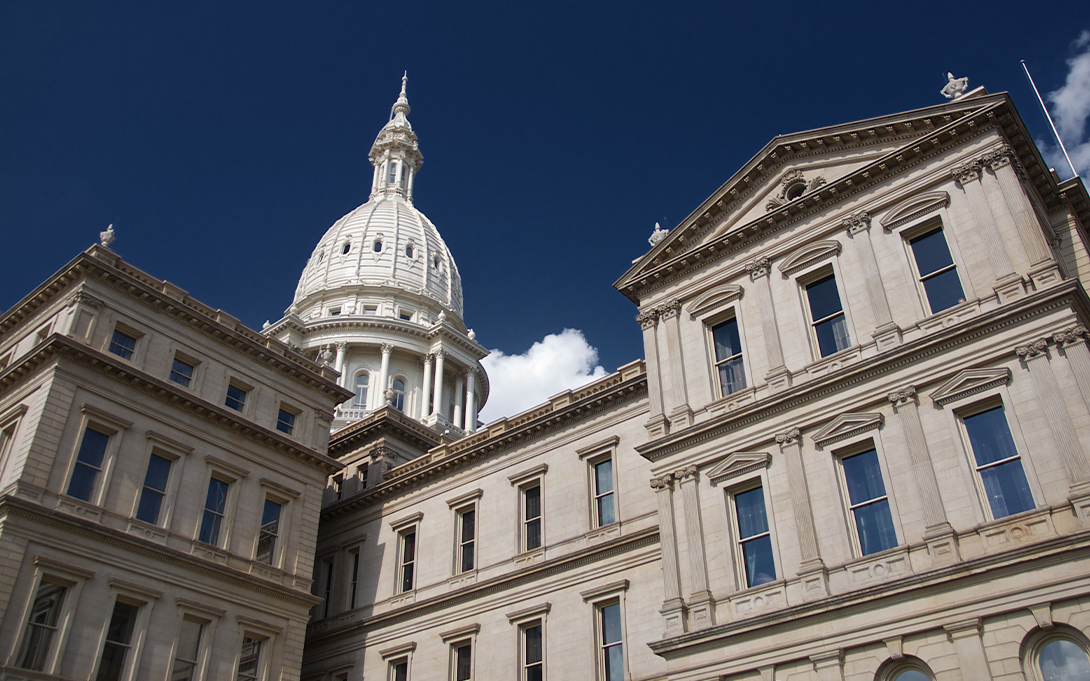
Michigan local government officials’ attitudes about the direction of the state, and the performances of the governor and the legislature have improved from last year, but remain more negative than positive. The 2020 Michigan Public Policy Survey gathered that information during April and May, through its census survey of 1,856 general purpose local governments throughout the state. The low approval numbers actually represent an increase in confidence over the 2019 survey; however, as the survey was being conducted, the effects of the COVID-19 pandemic were hurting local governments -- their unemployment numbers, tax revenues and stress on health resources. That was reflected in decreasing confidence over the weeks the survey proceeded.
The Center for Local, State, and Urban Policy (CLOSUP) at the University of Michigan Gerald R. Ford School of Public Policy conducts the MPPS every spring.
Some of the survey’s key findings:
-
Statewide, nearly half (46%) of Michigan’s local officials said in April and May 2020 that the state has gotten off on the wrong track, while 39% said the state is generally going in the right direction, an improvement over assessments in 2019. However, the percentage saying “right direction” declined over the course of the survey field period, in conjunction with the spreading COVID-19 pandemic.
-
Local leaders’ views of the state’s direction are strongly associated with partisan identification, and according to responses on the Spring 2020 MPPS, 57% of Michigan local government leaders identify themselves as Republicans, while 27% say they are Democrats, and 15% identify as Independents. Thus, among local officials who self-identify as Republican, just a quarter (26%) said Michigan is headed in the right direction. Meanwhile, among Independents, 39% said the state is headed in the right direction, and among Democratic local officials, 72% said the state is headed in the right direction.
-
Although only 39% of local officials statewide rated Governor Gretchen Whitmer’s job performance as “good” or “excellent,” this was significantly higher than her 2019 ratings (23%), with most change coming from those who said “don’t know” last year, when she had been in office for just a few months. By contrast, 27% rated the Governor’s performance in 2020 as only fair and 31% rated her performance as poor. These ratings also worsened over the course of April and May.
-
Although just 31% of local officials statewide said the Michigan Legislature’s performance is either excellent or good in 2020, this is up from 21% last year and represents the highest ratings for the Legislature since the MPPS began tracking them in 2011.
“Our longer term tracking shows real improvement this year in evaluations of state policymakers' performance, compared with last year. But the mini-trend of worsening evaluations as the pandemic spread across Michigan is hard to miss. Many local governments felt they needed more help from the state, which itself is part of a longer-term trend we've tracked over the last ten years,” said Tom Ivacko, interim director of CLOSUP.
Debra Horner, the MPPS project manager, noted, “We expected these positive and negative evaluations to be pretty closely associated with partisan views. But what was surprising was how they also relate to the COVID-19 pandemic here in Michigan. It’s not so much which jurisdictions have been hardest hit, but whether local leaders see the state and federal governments working to provide them with the resources they need locally to combat it.”
Launched in the wake of the Great Recession in 2009 by CLOSUP, the MPPS is conducted in partnership with the Michigan Association of Counties, Michigan Municipal League, and Michigan Townships Association.
The current report concludes that beyond the usual partisanship, “As time went on and they increasingly felt they were not getting the necessary resources, their views of the state’s direction and in particular the Governor’s job performance declined significantly.”
The entire report can be viewed here.
The Center for Local, State, and Urban Policy is a University-wide resource housed at the University of Michigan's Gerald R. Ford School of Public Policy. CLOSUP functions as an information resource for policymakers and practitioners, academics, students, the media, and the public. The Center works to foster effective communication between academic researchers, stakeholders, and the policymakers dealing with today's state, local, and urban policy problems. The Center also facilitates student learning and engagement with today’s critical policy issues.
Tom Ivacko joined CLOSUP at its founding in the fall of 2001 and serves as interim director of the Center. He also oversees the Michigan Public Policy Survey (MPPS) program and has been the lead or co-author on more than 75 MPPS publications covering a wide range of state and local government policy topics.
Debra Horner is on staff with the Ford School's Center for Local, State, and Urban Policy (CLOSUP) where she is a project manager on the Michigan Public Policy Survey (MPPS) program. She has been a regular lecturer in U-M's Political Science Department for over a decade and also teaches a course on Michigan politics and policy at the Ford School.

